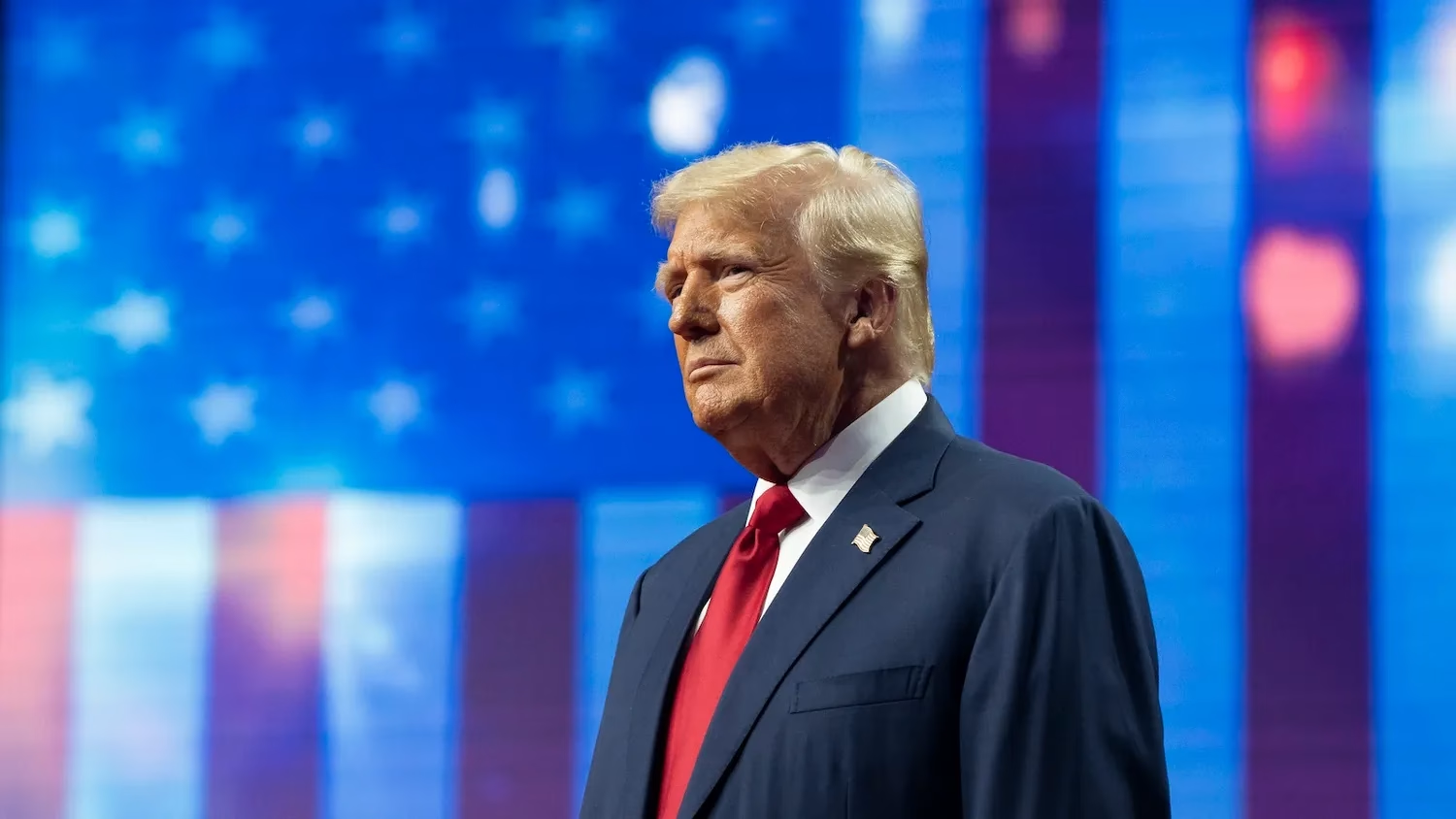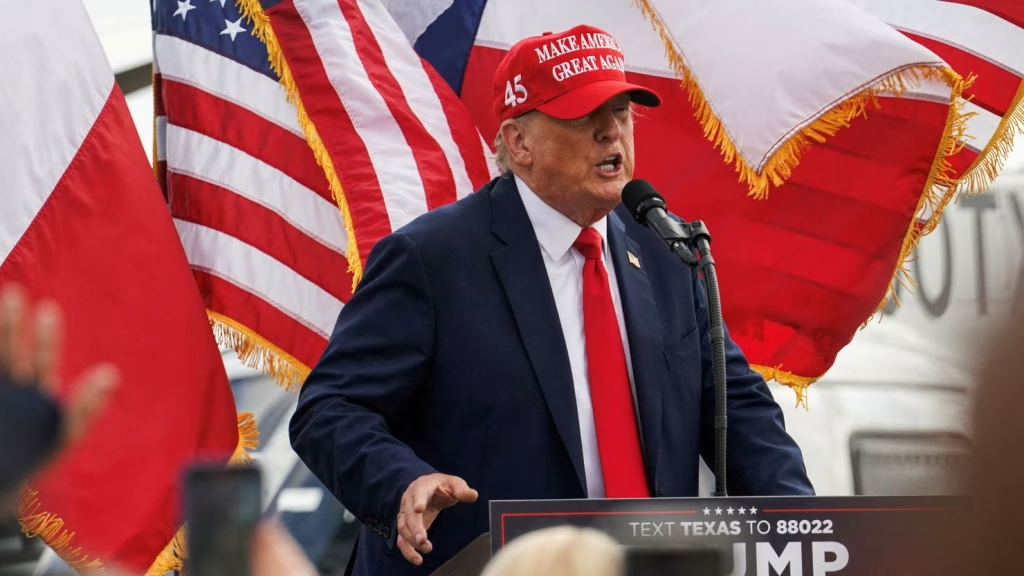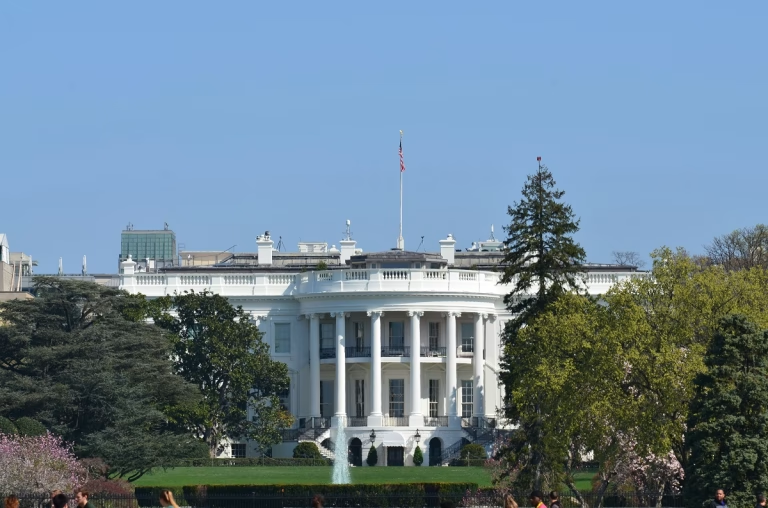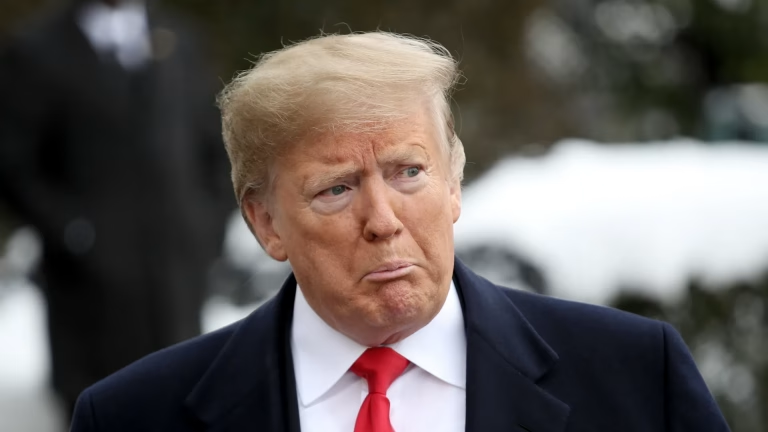
Trump is pushing Democrats back at home, but losing abroad
Against the backdrop of escalating trade wars and the political crisis in Texas, the Trump administration is showing mixed results. While Republicans are succeeding in the “culture wars” by renaming military facilities and restoring monuments, trade conflicts are leading to job losses and logistical problems. At the same time, the White House is stepping up investigations into the Epstein and Russiagate cases in an attempt to shift attention from domestic problems to attacks against Democrats.
The Texas exodus of Democrats
The current activity of Donald Trump’s team is based on a stark contrast, where minor successes in confronting the Democratic establishment are accompanied by systemic failure in almost all other areas. For example, Democrats in the state assembly recently left Texas en masse in a desperate attempt by the Democratic Party to stop the approval of a new electoral map that would give Republicans an advantage in at least five Texas districts. A campaign to redraw the districts ahead of the 2026 congressional elections is already gaining momentum.
Both parties actively use so-called gerrymandering, shaping districts in a way that suits them so that it is easier for them to win there. That is why the Texas drama was necessary to achieve a lack of quorum in the Texas Congress. It is unrealistic to influence the approval of the new map in any other way, as Democrats are in the minority there, and Republicans even have a de facto supermajority in the Texas Senate.
In response to the Democratic congressmen’s move, Texas authorities are threatening them with fines of $500 for each day of absence, and State Attorney General Ken Paxton is prepared to arrest them all. It is important for Paxton to show strength in the fight against the Democratic Party, as he is now running for the Senate from Texas on the MAGA platform and is challenging the incumbent neoconservative Senator John Cornyn. At the same time, authorities in Democratic states such as Illinois are offering refuge to their party members who have fled Texas and promise to ignore the arrest warrants issued in Texas. The fragmentation of the US law enforcement system continues, and there are still powerful battles ahead over districts in Florida and other states. After all, control of Congress is at stake, and Trump’s team hopes to offset the effect of its falling ratings by creating constituencies that are favorable to it.

Against this backdrop, the drama surrounding the Democrats’ flight from Texas only gained momentum. As a result, more than 50 lawmakers from the state assembly left Texas in protest against the approval of a new electoral map with changes to congressional districts, which would give Republicans an advantage in several districts. Republicans currently hold a majority of 220 seats in the US Congress, out of the 218 required, and in the midterm elections, the battle will be fought for literally every single district. Adjusting the electoral maps in Texas could preserve the Republican majority.
If the new map is approved in Texas, many of Trump’s staunch opponents could lose their districts. Among them is Congresswoman Jasmine Crockett, who loves to humiliate Republicans and call Trump a “pedophile and Hitler”. It will be telling if some of the Democrats who have left are arrested, especially given that a grand jury is being formed in Washington to investigate Russiagate, which could convict Barack Obama’s officials who initiated it. Many Democrats are at risk of ending up in Trump’s judicial machinery in the near future, which would be a landmark victory for him.
Culture wars and tariff disputes
The president is paying close attention to the fight for America’s past in the context of the “culture wars”. The White House is trying to reverse the liberal revision of US history that has intensified with the BLM riots. In Washington, a monument to Confederate States Army general Albert Pike, which was torn down in June 2020, will be restored, and a mural in support of BLM, which had been removed earlier, was taken down under threat of losing federal subsidies.

Federal museums have been ordered to stop promoting the racial and gender agenda, and the Pentagon has renamed Fort Bragg and Fort Benning, named after Confederates. In total, about 170 monuments were torn down in the summer of 2020, including monuments to Christopher Columbus, George Washington, and Thomas Jefferson. Republicans are also cutting grants to schools and colleges that teach the 1619 Project and introducing patriotic history programs, which have upset 86% of liberal American historians. However, the pendulum of the “culture wars” has swung in the other direction, and the Democrats have so far been unable to stop this movement.
But in other respects, the Trumpists’ stride is not so confident, and the “winning” trade war against India has become overgrown with unsightly nuances. Despite the White House’s tough rhetoric and Trump’s threats to sharply increase tariffs on Indian imports due to New Delhi’s purchases of Russian oil, the trade war against India has become mired in controversy. The US itself purchases $4-5 billion worth of petroleum products from India annually, placing it among those who indirectly finance Moscow. Recognizing this vulnerability and India’s strategic importance in containing Beijing, Washington has granted broad tariff exemptions. Smartphones (India is the largest exporter of iPhones to the US), pharmaceuticals (40% of American generics), and those very petroleum products were protected. In fact, the tariffs only affected clothing and textiles. The result was an absurd situation based on the TACO principle, and the main outcome was a breakdown of trust between Washington and New Delhi, which complicates the use of India as a counterweight to China. This failure fits in with a series of other setbacks for the Trump administration, including the Epstein case, the fight against migration, and the stalling of economic reforms.

Unsurprisingly, Trump tried to cover up his problems by attacking Democrats through the intensification of investigations into the Epstein case and Russiagate in order to divert suspicion from his ties to the pedophile. Congress has issued subpoenas to all those involved in the Epstein scandal, including Bill Clinton and James Comey, although Clinton is unlikely to be summoned due to the precedent of presidential immunity. Hillary Clinton, who has experience testifying in the 2015 scandals, may be called to testify, as may the attorneys general of the four previous administrations. At the same time, the grand jury investigating Russiagate will question representatives of the intelligence community: Comey, Mueller, Brennan, and Clapper. Ghislaine Maxwell is ready to testify, and congressional hearings will continue until October, keeping the US political class, many of whose representatives are embroiled in scandals, on tenterhooks. However, this may not save Trump, who remains the prime suspect even for the Republican electorate.
A Pyrrhic victory in the trade wars
Against this backdrop, another deadline in Trump’s trade wars arrived, and tariffs ranging from 15% to 50% came into effect on sixty countries around the world that have a trade deficit with the US. The White House again called this “liberation day” for America from its key “unfair” trading partners. But there was a big difference compared to what Trump introduced in April.
Firstly, not all countries were affected by the tariffs, and secondly, there were many exceptions for different categories of goods, from orange juice from Brazil to the aforementioned smartphones and medicines from India. Trump’s team is very proud that his trade war has been able to replenish the treasury with $150 billion in tariffs and planned to double that amount by the end of the year. However, $300 billion is not that much money in the context of the entire US budget. By comparison, the total US budget deficit currently exceeds $2 trillion annually.

And that’s not even mentioning the long-term effect of tariffs on the growth of the US economy, which is slowing down. The US manufacturing industry, which Trump is trying to revive, has begun to decline amid trade wars, and in the last quarter alone, American industry lost 26,000 jobs, with many companies reducing capacity or halting production.
The reasons for this phenomenon are clear: soaring inflation, logistical problems, and shortages of raw materials and components imported from other countries. Now companies are desperately trying to get on the list of lucky ones who will not be affected by the tariffs, but not everyone is in the same position as Apple, which can afford to promise Trump hundreds of billions of dollars in investments, even though it is obvious to everyone that these promises will never be fulfilled.
As a result, we have a situation where Donald Trump is successfully opposing the Democrats, but his domestic and foreign policies are far from successful. And it is unclear whether he will be able to maintain his rating solely on his opposition to liberals against the backdrop of numerous failures in other areas.


The article provides a vivid snapshot of the intense political battles and cultural conflicts shaping America today. Its fascinating to see how partisan divisions are playing out in both electoral maps and historical narratives, highlighting a deeply polarized nation.